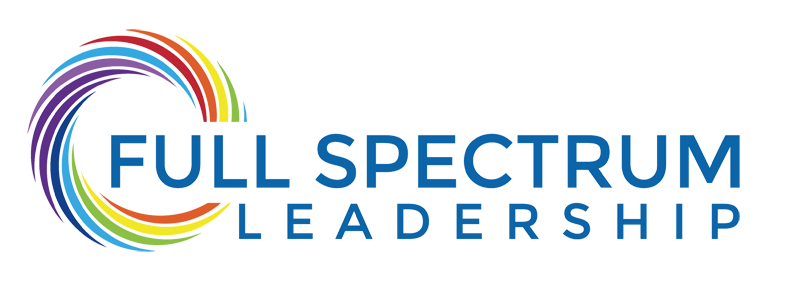Circumstances Do Not Alter Duty

Embracing Personal Responsibility
Peter Comrie
In the journey of life, one of the fundamental principles that guides our actions and decisions is the concept of personal responsibility. Defined as the acknowledgment and acceptance of the consequences of one’s actions and behaviors, personal responsibility forms the bedrock upon which individuals build their character, integrity, and sense of duty.
In the realm of leadership, this principle takes on added significance, as leaders are entrusted with the welfare and progress of those under their stewardship. Despite the ever-changing nature of circumstances and external factors, the essence of personal responsibility remains unwavering.
In this treatise, we delve into the significance of personal responsibility and explore how circumstances do not alter one’s duty to uphold this vital principle.
Understanding Personal Responsibility
At its core, personal responsibility entails taking ownership of one’s actions, choices, and outcomes, regardless of external influences or circumstances. It embodies the notion that individuals have the power to shape their destinies through conscious decisions and accountable behavior. Personal responsibility encompasses various facets, including:
Accountability:
Individuals hold themselves answerable for the consequences of their actions, whether positive or negative. They acknowledge their role in shaping outcomes and take proactive steps to rectify mistakes or improve upon past decisions.
Integrity:
Personal responsibility is synonymous with integrity, as individuals adhere to ethical principles and moral values in their interactions and decisions. They strive to act with honesty, transparency, and sincerity, even in the face of adversity or temptation.
Self-discipline:
Taking personal responsibility requires discipline and self-control, as individuals resist impulses and distractions that may detract from their goals or values. They exhibit determination and perseverance in the pursuit of excellence and self-improvement.
Empowerment:
Embracing personal responsibility empowers individuals to take charge of their lives and fulfill their potential. By assuming control over their actions and choices, they cultivate a sense of agency and autonomy, leading to greater fulfillment and achievement.
The Role of Circumstances
While personal responsibility is a guiding principle that shapes individual behavior and character, it is essential to recognize that circumstances and external factors may influence one’s environment and opportunities. Economic challenges, societal norms, familial obligations, and unforeseen events can all impact an individual’s circumstances and present unique challenges to overcome.
However, it is crucial to distinguish between external factors that may shape one’s environment and the immutable nature of personal responsibility.
Circumstances vs. Responsibility:
Contrary to popular belief, circumstances do not absolve individuals of their responsibility to act with integrity, accountability, and self-discipline. While external factors may present obstacles or constraints, personal responsibility remains an inherent duty that transcends situational challenges.
Leaders, in particular, are entrusted with the welfare and progress of their teams or organizations, and must uphold the principles of personal responsibility despite external pressures or adversities.
Examples of Personal Responsibility in Action
Throughout history, numerous examples illustrate the transformative power of personal responsibility in overcoming adversity and achieving success:
Nelson Mandela:
Despite enduring decades of imprisonment and oppression under apartheid rule in South Africa, Nelson Mandela exemplified personal responsibility by advocating for reconciliation, forgiveness, and peaceful coexistence. His unwavering commitment to justice and equality inspired millions around the world and ultimately led to the dismantling of apartheid.
Malala Yousafzai:
Shot by the Taliban at the age of 15 for advocating girls’ education in Pakistan, Malala Yousafzai demonstrated remarkable personal responsibility by continuing her activism despite grave threats to her life. Her courage and resilience propelled her to become a global advocate for education and the youngest Nobel Prize laureate.
Abraham Lincoln:
Leading the United States through the tumultuous era of the Civil War, Abraham Lincoln exhibited personal responsibility by steadfastly upholding the principles of liberty, equality, and democracy.
Despite facing immense challenges and criticism, Lincoln remained committed to preserving the Union and abolishing slavery, leaving a lasting legacy of leadership and integrity.
The Importance of Upholding Personal Responsibility
In today’s complex and interconnected world, the need for personal responsibility has never been greater. As individuals navigate the uncertainties of life and leadership, embracing personal responsibility serves as a guiding light that illuminates the path forward.
By holding ourselves accountable for our actions, choices, and contributions, we cultivate a culture of trust, integrity, and ethical leadership that fosters collaboration, innovation, and growth.
To Wrap Up
Personal responsibility is a foundational principle that underpins ethical leadership, integrity, and self-empowerment. While circumstances and external factors may present challenges and obstacles along the way, the essence of personal responsibility remains steadfast and unyielding.
Leaders, in particular, must uphold the principles of personal responsibility as they navigate the complexities of governance, decision-making, and human interaction. By embracing personal responsibility, individuals cultivate a sense of agency, resilience, and accountability that enables them to overcome adversity, inspire others, and create positive change in the world.
